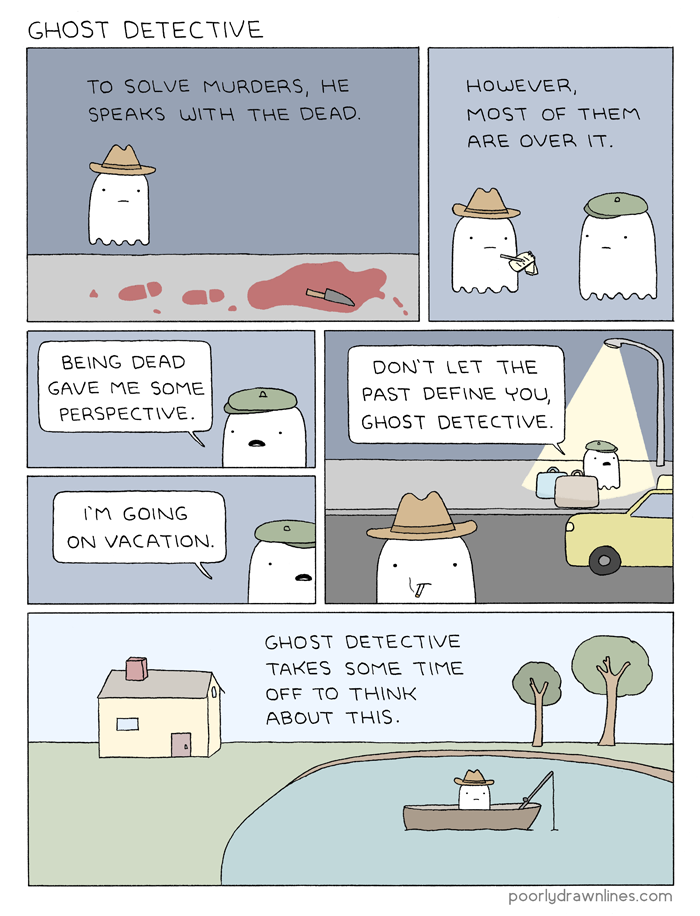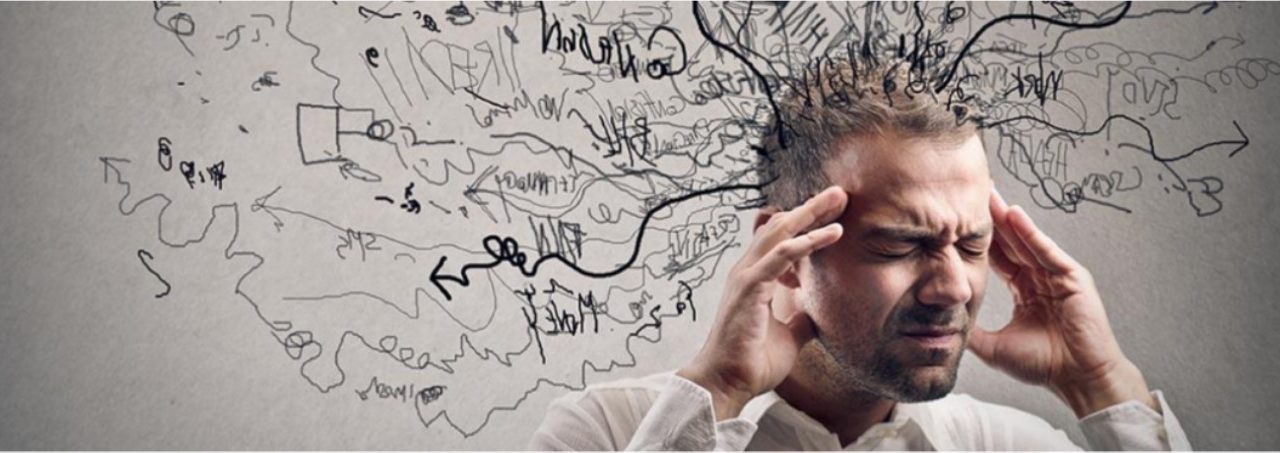A major problem I’ve identified in my life over the past two or so years is a great lack of motivation. I often feel burned out or worn down, like there’s no real point about getting excited about new or even familiar things. Making plans for the future seems like a Herculean task, because it’s so much work to actively look forward to things. I have to wonder how much of these feelings are a defense mechanism against the depression, and how much are a direct result of endless anxiety taking its toll.
Unfortunately this languishing lethargy also means that when my emotions do get stirred up, I have no ready way to deal with them. All of my lasting feelings are instead focused inward, without an effective means to vent or direct them externally. When I get frustrated, that painful itch stays for a long while, a continuing reminder of things I don’t or can’t have. When I get self-conscious, that fear of not being good enough takes over for far longer than I’d like. When I feel insignificant or overlooked, that feeling stays well into the early-morning hours, keeping me up on nights like this.
An aspect of my personality I’ve identified is a fiercely competitive streak, and I often ascribe my self-worth to my perceived success at a goal or task. Of course my ability to self-judge is skewed by feelings of inadequacy and ineptitude, but on the whole I usually manage to get by. In those rare occasions where someone nags on my shortcomings however, it sends me into a pretty deep spiral of self-doubt and self-critique. Tonight was a fairly concrete example of that, and one that delayed my going to bed for a few hours at least. As I’m staying up composing this blog entry, you can tell that even once in bed my mind is still swirling around the evening’s experiences.
The online game Heroes of the Storm, about which I have written many times, has no fewer than 88 unique and varied characters available to players, each of whom have different strengths, weaknesses, and play-styles that maximize their battlefield potential. Though I’ve been playing the game for over a year, it’s not something I spend every waking moment doing, and so there are many characters—and many nuances within those characters—at which I’m not well-practiced. Even people who have played for multiple years and have logged thousands of hours have shortcomings, weaknesses, or even simply preferences as to the type of character they prefer playing.
Teams are composed of five players, and people who know each other can group up so they are placed in the same matches. Traditionally my partners are my friends Steve and Sarah who brought me into the game in the first place. This means that our teammates are either two random players or a party of two people. Steve, Sarah, and I have a good rapport and largely understand how each other prefers to play, meaning we can synergize as much as possible. In the game mode we have played for most of 2019—Brawl—each player is given given a random set of 3 heroes from which to choose for the next game; no matter that a given player may prefer support characters over assassins, the game mode is designed to give people the broadest exposure to characters possible.
Of the more than four-score heroes available, there are perhaps a dozen with whom I have functionally no experience, either because their gameplay doesn’t mesh with my preferred style or they don’t combine well with the heroes that Steve and Sarah play. In one of the final games of the evening, I was saddled with three terrible hero choices, none with whom I felt comfortable. Looking at the options available to the rest of the team, I opted to try my hand at playing Lunara, an agile dryad that poisons her foes—a character almost completely alien to me.
The two people filling out our team were in the same party, meaning they had chosen to play together and likely knew one another, much as Sarah, Steve, and I did. It became apparent to everyone early on that I was uncomfortable playing as Lunara and was unfamiliar with her particular strengths. My damage was anemic, which was very problematic in a team where we had limited damage output to begin with. The two unknown players were quick to jump in with criticisms, ribbing me in a not-very-friendly way that they expected the healers to have dealt more damage than me by the end of the match.
The game did not go well for any of us, and their comments were focused on my playing and inability to affect the battlefield. I did what I could to brush them off, along with supportive comments from my friends, and we decided to play another match to get the bad taste of the last battle out of our mouths. Still, I was soured.
Unfortunately we ended up paired with the same duo again, and this time one of them had the option to play Lunara, which they jumped on. My role this time around was that of tank, meaning my job was far more to help control the battlefield than do direct damage. They quickly informed me that I should watch and learn, and that they still expected our healers to outdamage me. It was quickly evident that one of the players often chose Lunara for matches, and was talented at playing her.
“We’re five minutes in and I have more damage than he had all last game!” was the jeer which I think really set my anxiety off. Honestly I don’t even remember if we won or lost that game, because my attention was largely focused on the vitriol coming across the screen. Steve and Sarah began chirping back, and by the end of the match everyone was on edge. My friends tried to reassure me that the other players were just being jerks and that we all have bad games. I made placative noises but my heart really wasn’t in it—the repeated criticisms from the other players had found a raw nerve and kept pounding on it, speaking directly to my fears of unworthiness and inability.
Heroes of the Storm is a silly computer game designed for competitive entertainment, and I have learned far more about playing it than I expected in such a short time; I certainly never expected to write over 20,000 words on the subject. Like so many other distractions however, the results of a match can have real-world consequences. Not to the point of toppling dictators or upending inequality, but just as some fans take the successes or losses of their favorite professional sports team “way too far,” so too can the results of this silly game lighten or weigh upon the mind.
It was right around this time some years back when I first recognized that I was actively struggling with depression. Lying awake in my parents’ house for Thanksgiving, unable to sleep due to the crushing emotions pressing down and surging through me. It took me some time to actively seek treatment, but ever since this time of year has taken a somewhat sour tone for me, as I self-reflect and fear that I’m coming up short.
Two people, with whom I had never played before and will likely never play again, were able to derail my entire evening when just minutes prior to that match my friends and I were howling with laughter at a remarkably successful game. It’s now several hours later and I’m wide awake, thinking not about clever comebacks or snappy one-liners but instead looking at their comments from all angles, trying to suss out exactly how much truth their insults contained.
This is how my mind works, and admittedly it’s exhausting to be so self-critical and self-deprecative all the time. I felt that perhaps the best therapy, or at least spot treatment at my disposal, would be to get my thoughts out, to write down my experience. Even if it doesn’t help in the immediate moment, maybe some day I can look back and reflect on how far I’ve come since nights like this. Writing is my outlet, and I’m hoping that as I pen these final words I can finally get some sleep.
For some reason I’m reminded of a specific page from the absurdist webcomic Poorly Drawn Lines, reposted below. “Don’t let the past define you” is a great lesson, but one that’s very difficult to actually put into practice.















